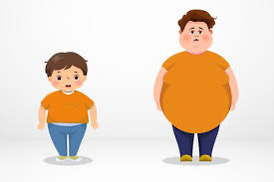The Intergenerational Transmission of Obesity: Key Insights from Recent Research
Obesity is a significant public health concern, and recent findings suggest that its impact may extend beyond individual choices to affect families across generations. A new study led by Mari Mikkelsen, MSc, from the UiT Arctic University of Norway, reveals compelling data on the intergenerational patterns of obesity. Presented at the upcoming European Congress on Obesity in Venice (May 12-15, 2024), this research highlights how the obesity status of parents can dramatically influence their children’s health in middle age.
The Findings
The study draws from the extensive Tromsø Study, which has been ongoing since 1974 and includes over 45,000 participants. Mikkelsen and her team analyzed data from 2,068 middle-aged adults (ages 40-59) and their parents, linking information from various surveys conducted over the decades. The results are striking: middle-aged adults whose parents struggled with obesity are six times more likely to experience obesity themselves compared to those whose parents maintained a normal weight.
Mikkelsen notes that while previous research has hinted at similar dietary and exercise habits running in families, this study uniquely focuses on how these patterns persist into adulthood. “We suspected obesity would also follow children into middle age,” she states, confirming that the connection is indeed strong.
The Role of Genetics and Environment
While the study does not delve deeply into the genetic factors influencing this trend, Mikkelsen suggests that both genetics and environmental influences play crucial roles. Other research indicates that genetic predispositions can make individuals more susceptible to weight gain, particularly in “obesogenic” environments, where unhealthy eating and sedentary lifestyles are the norms.
The data revealed that a one standard deviation increase (approximately four units of BMI) in a parent’s BMI correlates with a 0.80 unit increase in the offspring’s BMI for mothers and a 0.74 unit increase for fathers. This suggests that parental obesity not only increases the odds of their children facing similar challenges but also highlights the necessity for targeted interventions.
Implications for Public Health
The implications of these findings are profound. The intergenerational transmission of obesity underscores the urgency of prevention and treatment strategies, especially as obesity is linked to a host of health issues, including diabetes, cardiovascular disease, and even premature death. Mikkelsen emphasizes the need for research into factors that contribute to this transmission, with the hope of developing effective interventions that could help break the cycle of obesity.
Conclusion
As we learn more about the complexities of obesity, it becomes increasingly clear that addressing this issue requires a multifaceted approach. Understanding the intergenerational patterns of obesity could pave the way for more effective public health strategies, targeting not only individuals but also families. The findings from Mikkelsen’s study serve as a crucial reminder of the importance of fostering healthy environments and habits within families to combat this growing epidemic.
This research sheds light on a critical aspect of obesity that has long been overlooked, and it sets the stage for future exploration into how we can better support families in leading healthier lives.




